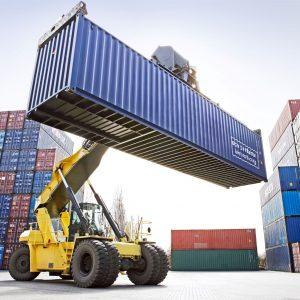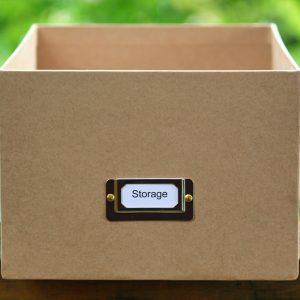Moving without a plan can become costly, as it can lead to unforeseen adjustments and unexpected expenditures. Hence, it is essential to set up an accurate budget plan that factors in relevant aspects of the move.
Preparing an accurate budget for your move can be challenging because you’ll mostly work around estimates. Even so, projected expenses can at least give you an idea of how much you’ll need and can assist you in setting financial limitations so you don’t go overboard.
What to include in your moving budget
If you’re new to creating budget plans for a big move, this list of expenses can help you get started.
Professional movers
Even though it may seem unnecessary, having professional movers to help you relocate is an excellent idea. Not only do they minimize the pressure that comes with moving, but they can also ensure a cost-effective way of moving. Plus, they guarantee the security and safety of your household items during transportation, which minimizes the chances of replacing or repairing damaged things. Companies like Big Boy Movers help you move your belongings efficiently.
With complete moving services, you won’t have to pay independently for the truck, the necessary equipment, fuel, labor, and other costs you would have incurred if you were to do it yourself.
Remember that your estimated moving costs might differ from the actual cost you receive from the movers at the end of the day. The cost difference is due to certain factors, such as:
- Time spent while doing the job
- Distance between your current home and your new home
- Moving size
- Difficulties experienced in the move
- Additional services acquired
You can save a few dollars by planning your time strategically and doing a few easy tasks before the movers arrive. For example, you could pack smaller items in boxes, disconnect or unplug all the electronics, or disassemble furniture.
Also, to draw an estimated cost close to the actual price, reserve an appointment with your prospective moving company and ask for a quote. Knowing the moving costs and how they’re calculated can help ensure you don’t stumble into hidden fees.
Moving insurance
Many people usually forget about moving insurance when planning a budget. However, it’s a necessary moving expense you should pay attention to. Bear in mind that accidents can occur at any time. Even with professional movers, there is still some chance that your belongings can get damaged.
Luckily, many moving companies provide coverage for your possessions. If you are meticulous about securing your items, you can get your own insurance to guarantee full coverage for all valuable items. You can be sure that your belongings are safe from any damage that might happen during the move.
Packing materials
The packing costs are the second must-have in your budget list. Even if the professional movers are packing for you, there are items you’ll have to package yourself. The items may include toiletries, clothes, vital documents, fragile items, electronics and cables, and other necessities you can’t live without.
Ensure you procure sufficient packing supplies like bubble wrap, plastic wrap, packing paper, and boxes. You should also buy markers for labeling. Proper tags make unpacking more organized when you reach your new home.
If you don’t have time to purchase these packing supplies, you can ask your moving company to provide them or purchase them for you. Some moving companies may include the cost of these packing supplies in their charges, while others may charge separately.
Storage
Sometimes, you might have to store your possessions for some time before moving to your new home. It primarily applies when you’re moving to a smaller space or want to get rid of other things. Thus, if you’re considering renting a space to store your possessions, ensure you add storage costs to your budget.
The good thing is that there are plenty of storage options nowadays, and you can pick one that bests fit your budget and needs. Find various personal storage spaces and compare the prices before settling on one. This way, you can find the most cost-effective storage space that’s suitable for your needs.
Cleaning services
Once you’re done moving all your belongings out of your old home, cleaning it thoroughly before you give back the keys to the landlord is crucial. This is to make sure that you get a full refund of your security deposit.
While cleaning the house on your own can save you a lot of money, it may not be ideal if you have physical or time restrictions. Hence, it would be best to employ a cleaning service. Hiring cleaning services can be costly, so ensure that you incorporate them into your moving budget.
Housing deposit
When renting a house, a housing or security fee is usually charged. The security fee is insurance if any damages occur in the home during your stay there. The deposit amount widely differs depending on the size of the house or the preferences of the landlord. In most cases, it’s usually one month’s rent.
If you’re planning to move into a rental, ensure that you set aside the housing deposit. That way, the money will be ready when the landlord asks for the deposit. Here are also other deposits you may have to pay:
Holding deposit:
These are fees you pay the landlord for them to reserve the house for you. Some landlords refund the money if you decide not to rent the house anymore; some don’t. Hence, ensure that you pay the holding fees if you’re sure you’ll move into the house; otherwise, you may not get a refund.
House valuation fees:
If you intend to buy a house on mortgage, you’ll be required to pay a house valuation fee during your mortgage application. Mortgage lenders use this to verify if you’ll pay for the substantial value of the house or not.
Property surveyor fees:
The purpose of the property survey is to ensure that the new house you’re planning to move into doesn’t have any issues. Like house evaluation, a report from the house survey is required for your mortgage application.
Solicitor fees:
A solicitor, also known as a conveyancer, deals with all the agreement contracts, provides you with legal counsel and property advice, handles the land registry, assists in conducting local council searches, coordinates with the agencies or broker, and makes payments. In general, they act as an intermediary between you and the seller. While hiring a solicitor may not be necessary, it helps make the purchasing process more manageable.
Including all these fees in your budget helps you avoid unpleasant surprises in the moving process.
Utility costs
Another essential thing to include in your moving budget is the cost of utilities in your new home. Utilities include things like trash services, water, electricity, and gas.
As a new tenant, you need to watch out for connection and installation charges when relocating to your new place. Make sure to talk to a few utility companies to know the charges in advance, compare their prices, and choose one that best suits your budget. Fortunately, most utility companies offer significant discounts to new tenants.
Other than the utility upfront expenses, consider the monthly cost of these utilities to ensure you’re able to pay for them every month and prevent financial troubles in the future.
Food and other supplies
Remember to include food and other necessities in your budget during the move. They include drinks, snacks, and meals for you and the family. It’s also kind to tip professional movers for their services if you’re employing them to help you move. These expenses can add up quickly, so it’s crucial to plan and budget for them.
Child and pet care
You’ll have to include children and pets in your moving budget if you have them. It may involve finding a babysitter or childcare facility, pet sitting, or boarding expenses. Packing, loading, and unloading can be challenging and dangerous with the kids running all around, so you opt to have experts care for them while you’re doing all the heavy work.
Child care can be costly, so ensure you include that in the budget. Asking family members or friends to help watch your kids while you move would be great if you want to save on costs. You can also board your pets in a pet hotel to ensure their safety.
Emergency funds
Setting aside emergency money when moving is always an excellent idea. Emergency funds help to cover unanticipated expenses that may arise along the way.
The amount you choose to set aside as emergency funds will largely depend on your situation financially. But, generally, saving at least 20% of your overall moving budget for unanticipated costs is always good. Doing this ensures you’re ready for anything that comes your way and can avoid financial challenges while moving.
Conclusion
Moving is a challenging process and can be expensive. When budgeting for your move, note down all the potential supplies and services you might require during the moving process. Remember to research charges for professional movers, cleaning services, and storage costs to ensure you get great deals and services.
Also, remember to set aside funds for emergencies for unexpected expenses. Before you move, identify all the essential items and services you need and devise a budget for them. Knowing all the moving costs will help you prevent overspending, remain on course with your budget, and make your move as affordable and smooth as possible.





